A plank with a uniform sphere placed on it is resting on a smooth horizontal place. Plank is pulled to the right by a constant force F. If sphere does not slip over the plank. Which of the following is incorrect? 
both have the same acceleration
acceleration of the centre of sphere is less than that of the plank
work done by friction acting on the sphere is equal to its total kinetic energy
total kinetic energy of the system is equal to work done by the force F
The correct Answer is:B, C, D
Due to force F the plank has a tendency to slide to the right below the sphere. Hence, friction acts on the plank to the left and that on the sphere acts to the right. The friction not only acts that on the sphere acts to the right. The friction not only acts on accelerating force on the sphere but also produces an anticlocwise moment. Therefore, the sphere experiences a righward translational acceleration and an anticlockwise angular acceleration simltaneously.
If the angular acceleration of the sphere is α then its centre of mass has a backward acceleration rα relative to the plank. Hence, its net acceleration becomes less than that of the plank. Hence, option b is correct. obviously option a is incorrect.
Since there is no sliding between the surfaces of the sphere and the plank, therefore, no energy is lost against friction.
Since friction, acting on the sphere, is the only force which provides motion to it, therefore KE of the sphere at any instant is equal to work done by the friction acting on it. Hence, option c is correct.
Since no energy is lost against friction therefore KE of the whole system is equal to work done by force F. Hence, option d is also correct.
Topper's Solved these Questions
- RIGID BODY DYNAMICS 2BOOK - CENGAGE PHYSICS ENGLISHCHAPTER - RIGID BODY DYNAMICS 2EXERCISE - Multiple Correct
26 Videos
- RIGID BODY DYNAMICS 2BOOK - CENGAGE PHYSICS ENGLISHCHAPTER - RIGID BODY DYNAMICS 2EXERCISE - Linked Comprehension
71 Videos
- RIGID BODY DYNAMICS 2BOOK - CENGAGE PHYSICS ENGLISHCHAPTER - RIGID BODY DYNAMICS 2EXERCISE - Subjective
19 Videos
- RIGID BODY DYNAMICS 1BOOK - CENGAGE PHYSICS ENGLISHCHAPTER - RIGID BODY DYNAMICS 1EXERCISE - Integer
11 Videos
- SOUND WAVES AND DOPPLER EFFECTBOOK - CENGAGE PHYSICS ENGLISHCHAPTER - SOUND WAVES AND DOPPLER EFFECTEXERCISE - Integer
16 Videos
Similar Questions
A plank with a uniform sphere placed on it resting on a smooth horizontal plane. Plank is pulled to right by a constant force F. If sphere does not slip over the plank. Which of the following is incorrect?
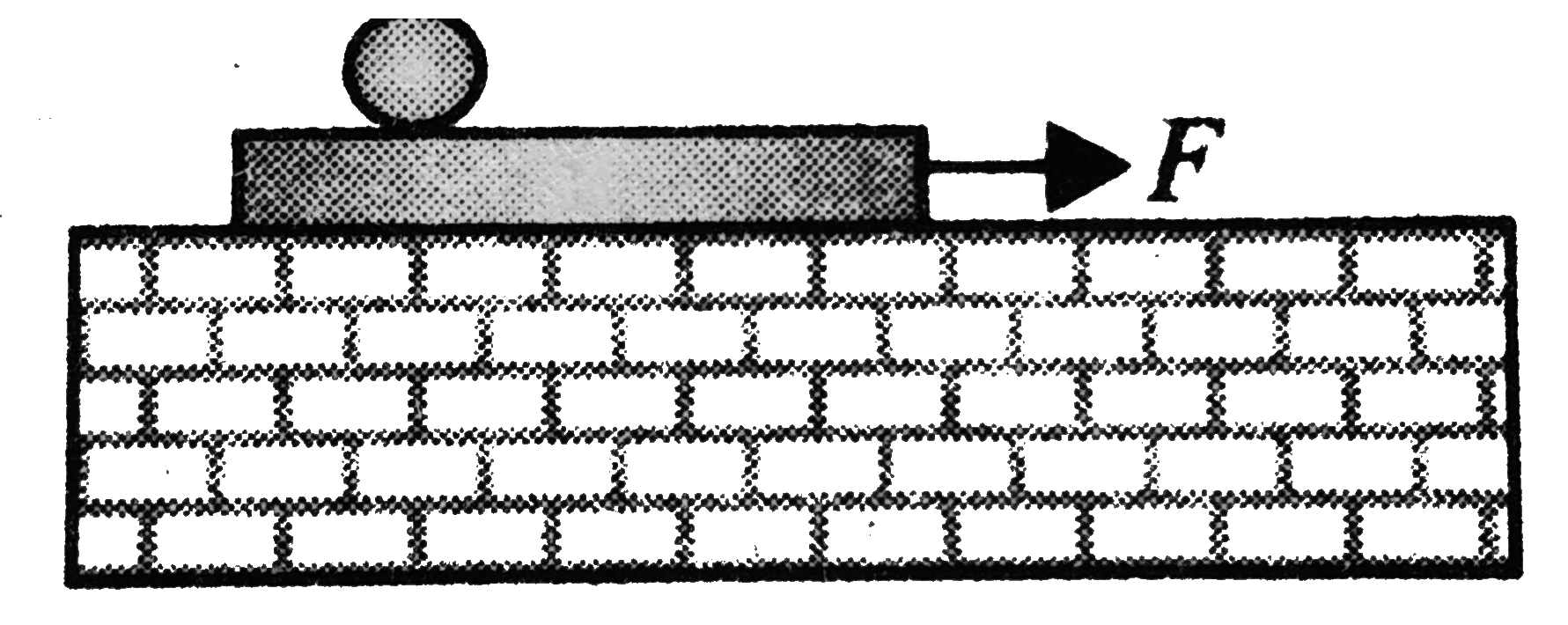
View SolutionA plank with a uniform sphere placed on it rests on a smooth horizontal plane. The plank is pulled to the right by a constant force F. It the sphere does not slip over the plank, then

View SolutionIn the figure shown, the plank is being pulled to the right with a constant speed v. If the cylinder does not slip then:
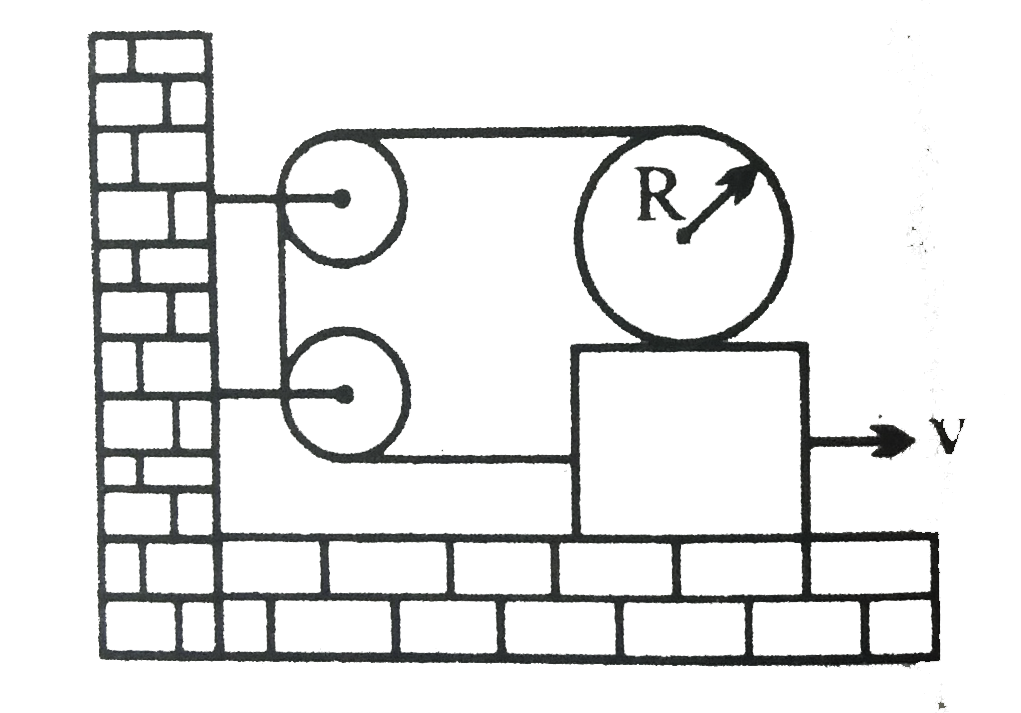 .
.
View SolutionA uniform plank is resting over a smooth horizontal floor and is pulled by applying a horizontal force at its one end. Which of the following statements are not correct?
View SolutionA uniform plank is resting over a smooth horizontal floor and is pulled by applying a horizontal force at its one end. Which of the following statements are not correct?
View SolutionA plank of mass M, is placed on a smooth surface over which a cylinder of mass m(=M) annd radius R=1m is placed as shown in figure. Now the plane is pulled towards the right wilth an external force F(=2Mg). If the cyinder does not slip over the surfcace of the plank, find the linear acceleration of he plank and the cylinder and the angular acceleration of the cylinder. (Take g=10ms2)

View SolutionConsider a disc of mass m and radius R placed on a rough plank of mass M which is turn is place on a smooth horizontal surface. Now plank is pulled by a force F and disc starts to roll on the plank.
If there is no friction any where then find
(a) Fricition force acting on the disc
(b) Angular acceleration of the disc
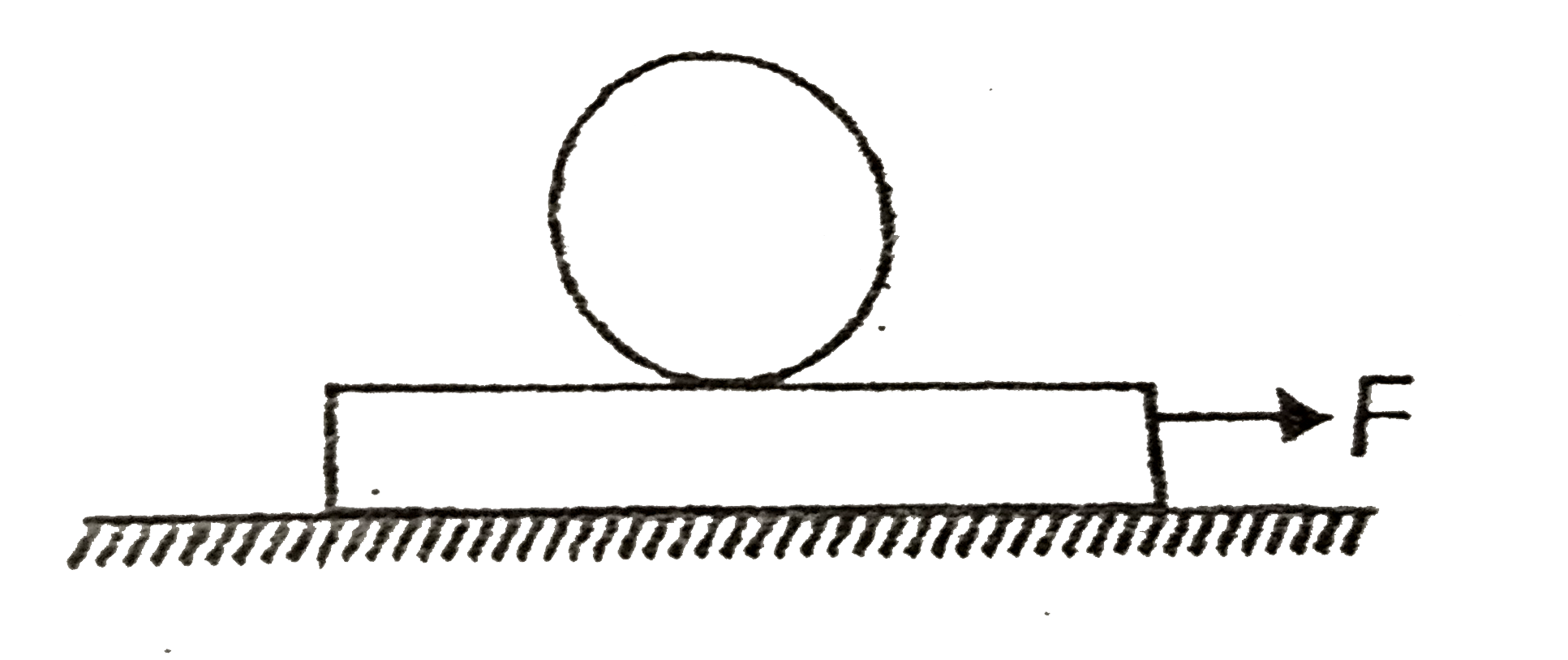
View SolutionA solid sphere of mass M and radius R is pulled by a force F as shown in figure . If the sphere does not slip over the surface , then frictional force acting on the sphere is
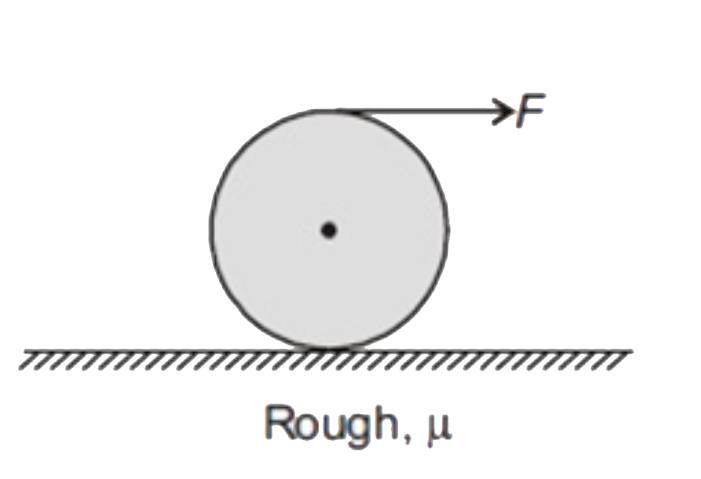
View SolutionA uniform sphere is place on a smooth horizontal surface and as horizontal force F is appied on it at a distance h above the surface. The acceleratioin of the centre
View SolutionA sphere of mass m and radius r is placed on a rough plank of mass M. The system is placed on a smooth horizontal surface. A constant force F is applied on the plank such that the sphere rolls purely on the plank. Find the acceleration of the sphere.
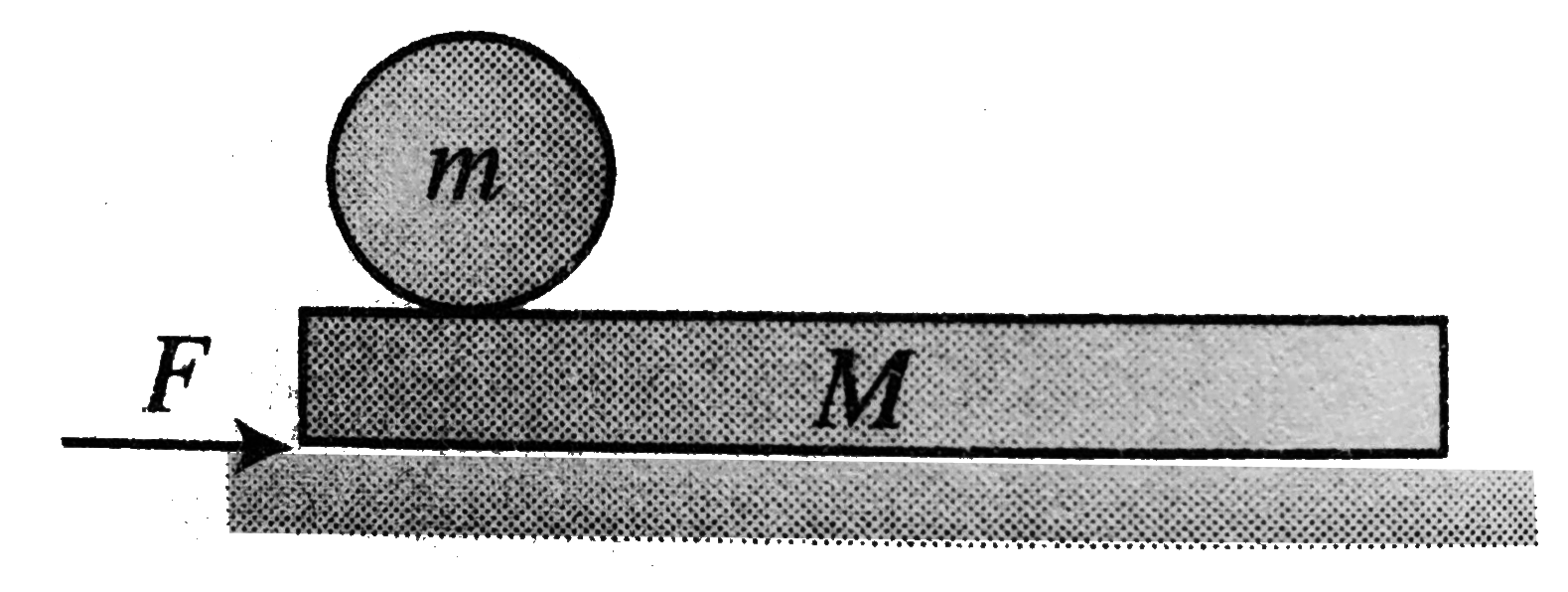
View Solution
